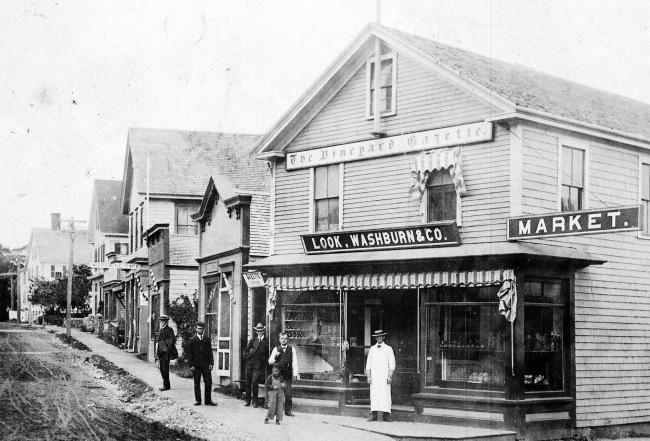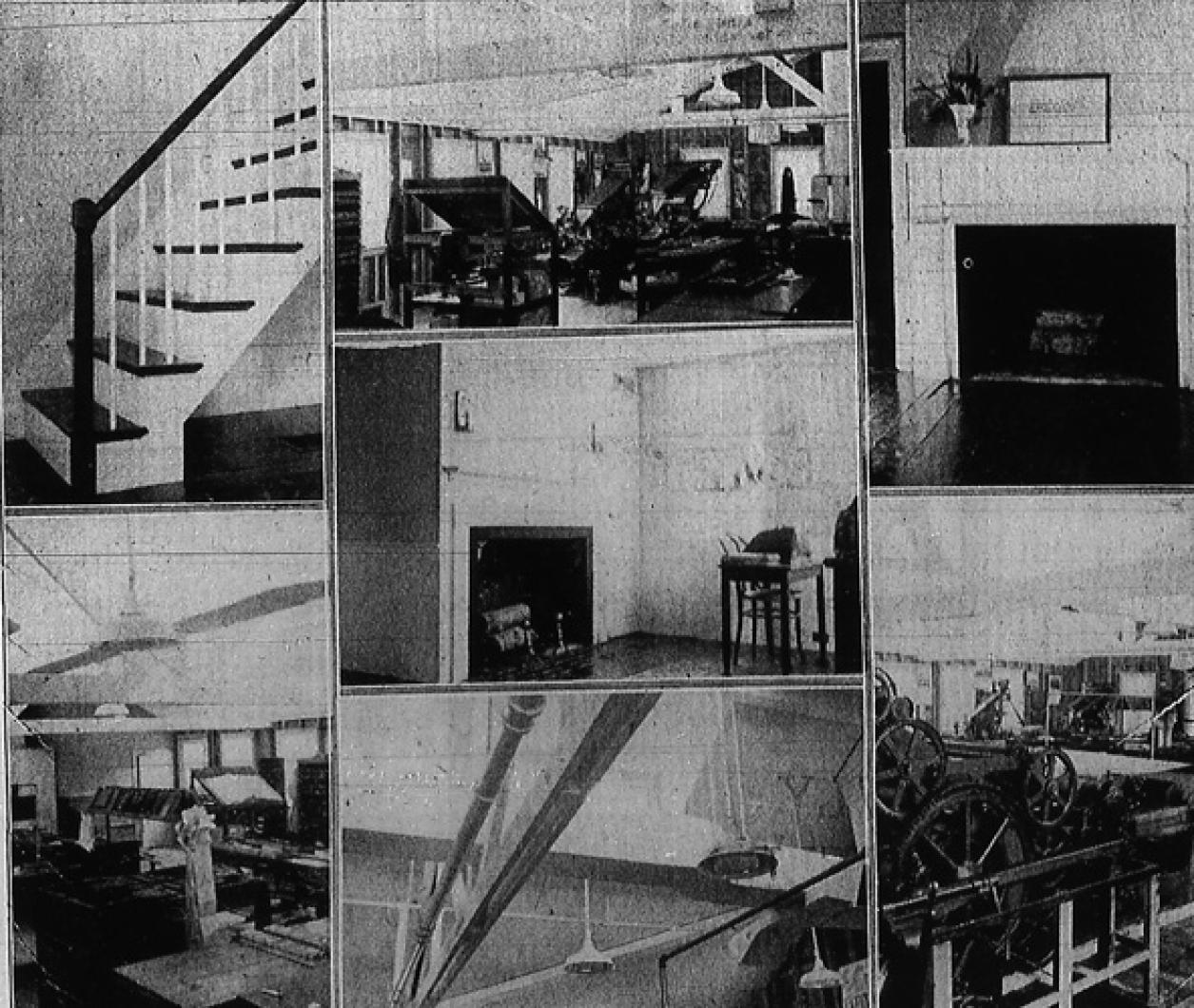Almost five hundred persons, representing all Island towns, attended the Open- house of the Vineyard Gazette, held Saturday afternoon and evening at its now home, at corner of South Summer Street and Davis Lane, or, if you prefer, Pilgrim’s Alley.
Even before the published time of the afternoon opening several guests had arrived, and from that time on there was a steady flow of visitors, clocked at three a minute for the first twenty five minutes. They were comfortably distributed through the old house which was first occupied so far as the records show, by Capt. Benjamin Smith, captain of militia, during the Revolution, and the one great room of the new wing, finished only a few weeks ago.
Only the downstairs rooms of the old house were on display as completion of the renovation of the upstairs awaits a later day. The rooms which were open to visitors included the reception room, which eventually, it is hoped, will take on the aspect of a sitting room in a ancient Edgartown home. It was rather sparsely furnished for the opening with borrowed furniture, but the flowers sent by well wishers of the Gazette transformed this room as well as the others. The reception room is papered above the chair rail in what we freely admit is a stunning and appropriate wall paper, a reproduction of one found more than a century ago in an old England house, and featuring bunches of grapes almost identical with that which appears on the seal of the Vineyard Gazette. The floor in this room as on all the ground floor is painted a pleasing terra cotta, and the wide old boards, which slope a little crazily with age here and there, are one of the valued attributes of the house.
City Room Has Twin Fireplaces
The editorial sanctum is painted a gay yellow, with white trim like that throughout the rest of the rooms and it, like all the rest, has a fireplace. The big city room and general business office, at the back of the old house, is the result of throwing two of the, original square rooms together, the only material liberty taken with the plan of tile old house. A big room, painted buff with seven windows and twin fireplaces, it must be unique among city rooms of newspapers large or small. Refreshments were served here, Mrs. Joseph C. Allen, Miss Audrey Wagner and Mrs. Everett M. Gale presiding at the punch bowls.
In the hall, many of the pictures of members of the summer colony, which adorned the walls of the old Gazette office, had been salvaged and, supplemented by a fresh supply, were shown on an enormous bulletin board which covers one side of the wall. The old pine stair rail and graceful staircase also came in for their share of attention.
During a large part of the time attention was focussed on the activities of the “shop” where all the processes of printing a newspaper were demonstrated. The Ludlow machine, used to set display advertising type, and the two typesetting machines were working steadily, and there was always a group gathered around the linotype or the intertype to inquire into its intricacies. “There is the machine that thinks,” said Judge Arthur W. Davis, expressing the feeling of many who viewed the mechanical marvel - a marvel when it is working just right - and went home clutching souvenirs of the day, their names neatly and expeditiously set on lines of type.
The ponderous press, the moving of which to the new office was one of the problems of the exodus, showed its tricks as it rolled off copies of the special section of the Gazette which were also distributed to those who wished to take them home The paper storage ell, with it’s great rolls of newsprint, the incinerator, and the smelting room all were carefully inspected and that old veteran, the hand press up on which the first Gazette was undoubtedly printed in 1846, now doing service as a proof press, was duly admired.
Some Had Been Born Here
A number of those who crossed the threshold of the old house had been born in the building, which had first housed a single family, then two families, and finally, in it’s last incarnation before it became a newspaper office, four families. Even more of the visitors had seen the office in its latter days and contrasted its present condition with that to which old age and neglect had brought it. Some of them had condemned it to death, mentally, and now were glad that it had been spared.
And the old building itself said nothing at all, though it must have been as dizzy as its new occupants were drinking in its praises, and perturbed no doubt by the unwonted sounds of sharply sounding telephone bells, emphatically clicking typewriters, and those monsters of the machine age, presses and type setting machines, which were scarcely dreamed of in its youth.






Comments